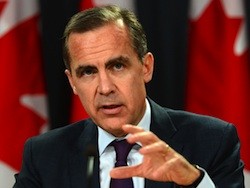

David Blood, co-founder and senior partner of Generation Investment Management, said the transition to a low-carbon economy presents ‘extraordinary’ economic opportunities which he has not seen before in his 35 years in finance.
He spoke this morning on a webinar, Investors as catalysts of the climate transition, hosted by the London Stock Exchange Group and the United Nations-backed Principles of Responsible Investment.
The PRI's @Fireynolds introduces our new #climate starter guide for asset owners on the PRI/@LSEGplc webinar today. Read it here ➡ https://t.co/izNsCzTfsK pic.twitter.com/AHK8lc9jsd
— The PRI (@PRI_News) June 30, 2020
“People are recognising the link between sustainability, inequality and resilience,” Blood said. “Investors are insisting that climate change and social justice should be addressed when we build back better after Covid-19. The economic opportunities are extraordinary, which I have not seen in my 35 years of finance,”
Generation Investment Management was founded in 2004 to develop sustainable investing and demonstrate the long-term commercial and societal benefits of this approach. Blood previously spent 18 years at Goldman Sachs, including as chief executive of Goldman Sachs Asset Management.
The importance of data and analytics to measure the effectiveness of environmental, social and governance strategies was highlighted throughout the webinar.
Blood is part of a group working on a ‘temperature score’ that could measure how portfolios are contributing to climate change transition. He described the transition to net zero greenhouse gas emission as the most significant economic change in history.
“We are just getting started in collaboratively developing forward-looking indicators that are useful metrics for investors to make thoughtful capital allocations,” he added.
Warming potential
For example, French insurer AXA announced its new climate strategy last November to align its investments with the Paris Agreement, committing to a 1.5°C ‘warming potential’ by 2050. AXA said in a statement: “Warming potential is defined as the impact that AXA’s investments may have on the climate, expressed in temperature, as explored in the 2019 Climate Report. Moreover, AXA will publish annual updates.”
The insurer said that its investments had a 3.3°C warming potential, below the market reference of 3.7°C but still far above 1.5°C Paris target. “This means most investors operate in a business environment which is not “Paris-aligned”, and where mainstream investment strategies can only lead to a world which is above 1.5°C. We remain largely constrained by a carbon intensive global economy,” added AXA.
Sylvain Vanston, group head of climate & environment at AXA, said on the webinar that the firm can measure warming potential at the level of portfolios, asset classes or clients. “It is not a portfolio guide but a very promising measurement,” he added.
Vanston continued that AXA has also joined the Net Zero Asset Owner Alliance and will contribute to the development of metrics and methodologies such as the warming potential.
“The alliance has one specific goal – to be climate neutral by 2050 – and is tightly focused on asset owners,” he added.
TCFD
Mark Carney, the former Governor of the Bank England, agreed that the transition presents a huge commercial opportunity. He said on the webinar: “The investment needed will create jobs and growth.”
Carney is now the UN special envoy for climate and finance and the UK Prime Minister’s finance advisor for COP26 in Scotland, which has been delayed to next year.
He noted that the Task Force on Climate-related Financial Disclosures made initial recommendations to the G20 three years ago. Since then more than 1,000 companies have supported the TCFD recommendations on reporting, including financial firms who are responsible for more than $139 trillion of assets.
“The TCFD is a private sector initiative and the private sector has does most of the heavy lifting,” Carney added. “Now is the point for the public sector to bring forward common global approaches.”
David Schwimmer, chief executive of the London Stock Exchange Group, agreed on the webinar that there is a lack of comparable and relevant ESG data.
“We have a duty to improve the data by working with investors and issuers,” he added. “We have the opportunity to engage with corporates as well as with regulators.”
Schwimmer gave the example of the exchange listing large natural resources companies.
“We can support the ESG trajectory of high-carbon issuers,” he said. “Our partnership with TPI shows that proactive policy engagement is critical.”
In January FTSE Russell, the index, data and analytics provider owned by LSEG, launched the FTSE TPI Climate Transition Index Series which provides investors with benchmarks to align a broad equity portfolio with climate transition and the goals of the Paris Agreement.
The index was created in collaboration with The Church of England Pensions Board and the Transition Pathway Initiative. The index series combines FTSE Russell and TPI analysis on company exposure to five climate considerations: green revenues, fossil fuel reserves, carbon emissions, management quality and carbon performance assessments.










